The disaster relief charity bringing food to Ukraine’s refugees
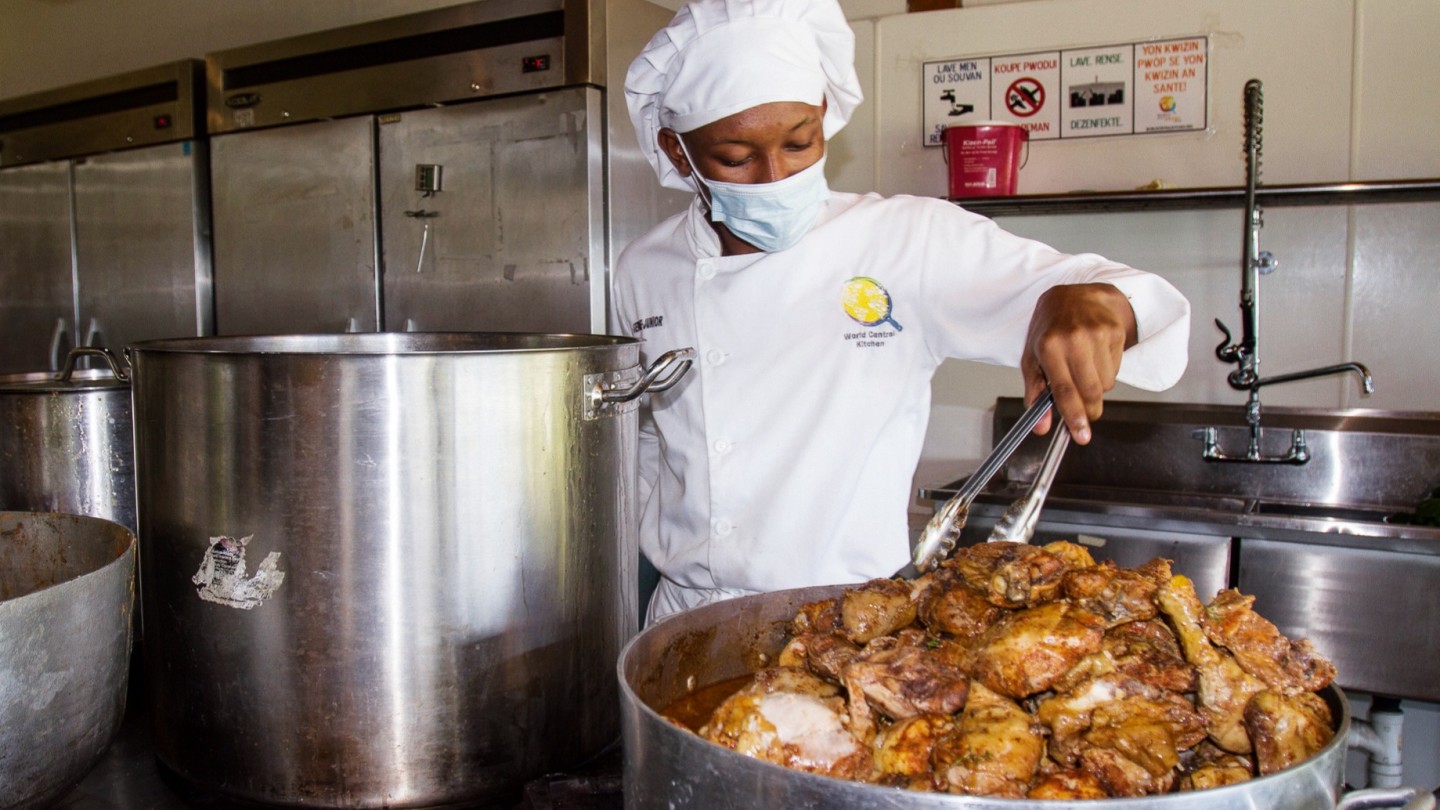
Roula Khalaf, Editor of the FT, selects her favourite stories in this weekly newsletter.
In the light of the news that seven people working for the NGO World Central Kitchen have been reported dead following an Israeli airstrike in Gaza on 1 April, we republish this 2021 article about the organisation’s work.
Donate directly to World Central Kitchen here
Has there ever been a more urgent need for the World Central Kitchen? The not-for-profit was founded in 2010 by Spanish-born chef José Andrés in response to the earthquake that devastated Haiti. Among its initiatives, the organisation provides meals to communities hit by natural disasters and humanitarian crises. Both are on the rise. Even in the short time since CEO Nate Mook joined World Central Kitchen (WCK) four years ago, he’s seen the escalation. “2017 was a turning point for the planet,” he says. “Three major hurricanes hit the US. That used to be a challenge we faced once a decade. Now it is multiple times a year. It’s not just frequency but speed and intensity. After Hurricane Katrina, New Orleans developed an evacuation plan that takes 72 hours to execute. Now that plan has to be overhauled because storms hit harder and faster.” The pandemic has intensified the need for the relief, as have recent humanitarian crises such as Haitian asylum seekers amassing at the US-Mexico border, where WCK has been feeding thousands.
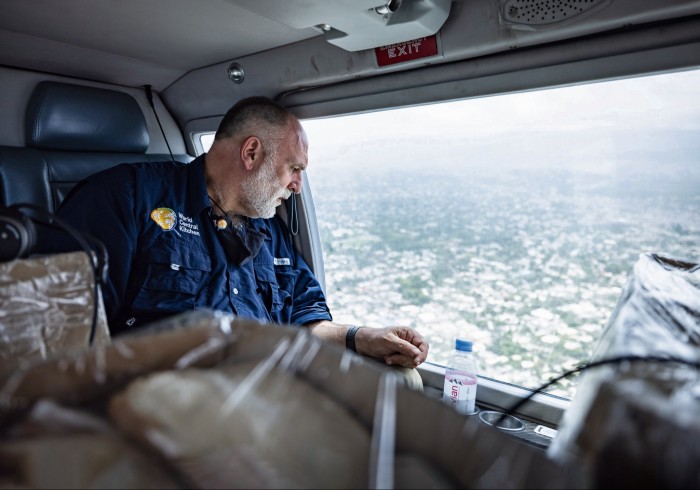
The current model for what WCK does was forged in Puerto Rico in 2017 after Hurricane Maria. The island was especially vulnerable when supply chains were hit because 85 per cent of its food was being imported. Andrés and the WCK team saw the value in mobilising a local network of chefs, food producers and distributors to provide fresh meals, instead of having to rely on imported resources or unhealthy pre-packed MREs (Meals Ready to Eat) shipped in by the military. For WCK it’s also not simply about nutrition, it’s about empathy. “A hot meal is much more than just calories,” says Mook. “It’s a message that during this difficult time somebody is thinking about you.”
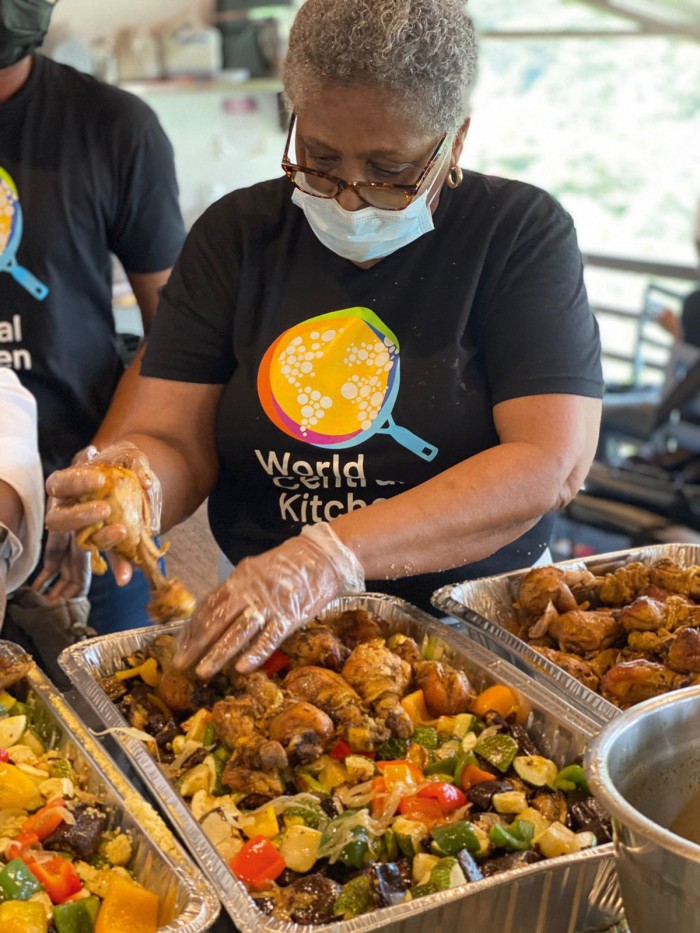
It’s also crucial to make sure meals are culturally appropriate. Afghan refugees coming off a plane in Virginia were greeted with halal dishes organised by WCK from local Afghan and Middle Eastern restaurants. “We think of it as comfort food,” says WCK’s chief programme officer Alexandra Garcia. “A meal [they might] make at home.” Mook recalls being in Florida in 2018 after Hurricane Michael and distributing Southern meals of barbecued pork, mashed potatoes, Brussels sprouts and cauliflower to a family whose mobile home had been obliterated. “It was a miracle they survived,” he says. “You really see the impact a plate of food has on people to lift their spirits and give them hope.”
The rise in global disasters has certainly made WCK’s work more challenging. “But,” says Mook, “we’ve never not been able to be anywhere because of being stretched thin. We scale up to meet the need.” Over the past 18 months, donations actually increased to drive WCK’s efforts to tackle food insecurity caused by the pandemic. Given the organisation’s funding model (“We don’t rely on government contracts and more than half of our funding comes from individuals, primarily in the US,” says Mook), WCK is now focused on building a “real community of supporters” around the world. The team recently opened a European headquarters in Madrid. As well as disaster relief, donations go towards financing WCK’s longer-term resilience programmes. The Duke and Duchess of Sussex are among those who have partnered with WCK to fund relief centres in Puerto Rico, India and Dominica, which double as community/education centres when natural disasters aren’t happening.
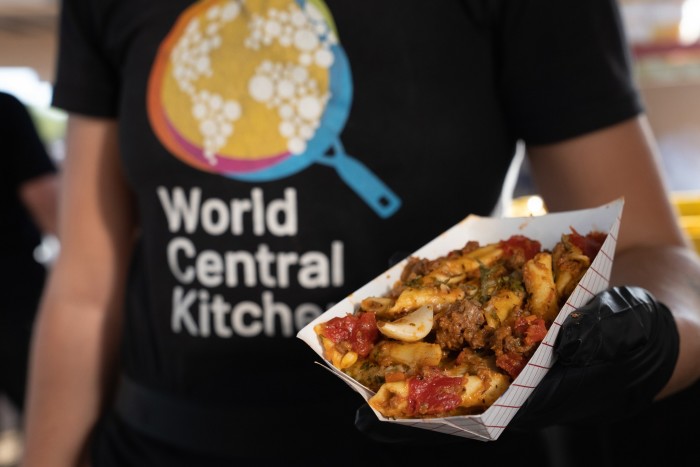
Earlier this year, the organisation also launched its Chef Relief Training programme in order to share knowledge on how to run relief kitchens globally. “We want everybody to be able to do what we do,” says Mook.
The training covers everything from how to source ingredients to feed 10,000 people to how to use large-scale equipment such as tilt skillets and steam kettles, which hold 60 gallons. Chefs are taught shortcuts, such as using parboiled rice (which cooks faster) and pre-cooked proteins (to avoid the hazards of raw meat). They also learn how to cook large quantities of paella (one of many rice dishes suited to feeding thousands) and mass produce sandwiches (what Andrés calls “fresh MREs”). This includes the team’s trademark “ham, cheese and more mayo” sandwich – “more mayo” because, as Andrés puts it, mayo has calories, it’s delicious and keeps bread moist but not soggy.
“It’s about food that can be done at scale but with dignity,” says Mook. “Many of our chefs come from restaurants. They want to be proud of what’s coming out of the kitchen. We want it not to look like prison slop.” He adds: “We like to say that the reason chefs are perfect for this work is because restaurants are controlled chaos every day. There is a camaraderie that comes out of that. Food naturally brings people together.” To donate, visit wck.org
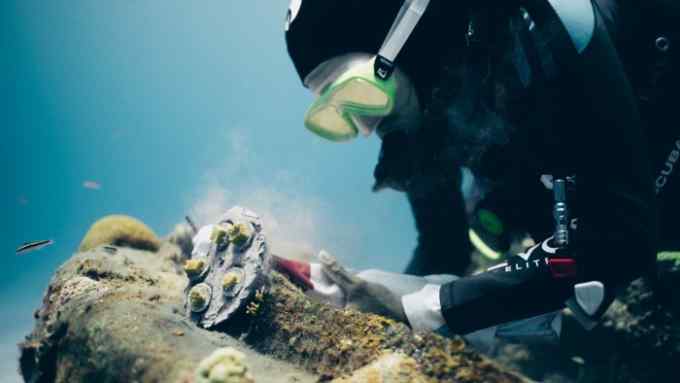
Comments